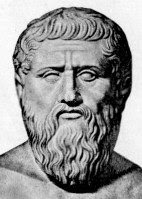Here are excepts from a very interesting article from Newsweek by Wray Herbert:
"A provocative new book from a Harvard psychologist suggests that changing how we think about our age and health can have dramatic physical benefits.
...
Imagine that you could rewind the clock 20 years. ... and ... you're 20 years younger. How do you feel? Well, if you're at all like the subjects in a provocative experiment by Harvard psychologist Ellen Langer, you actually feel as if your body clock has been turned back two decades.
Langer did a study like this with a group of elderly men some years ago, retrofitting an isolated old New England hotel so that every visible sign said it was 20 years earlier. The men—in their late 70s and early 80s—were told not to reminisce about the past, but to actually act as if they had traveled back in time. The idea was to see if changing the men's mindset about their own age might lead to actual changes in health and fitness.
Langer's findings were stunning: After just one week, the men in the experimental group (compared with controls of the same age) had more joint flexibility, increased dexterity and less arthritis in their hands.
Their mental acuity had risen measurably, and they had improved gait and posture. Outsiders who were shown the men's photographs judged them to be significantly younger than the controls. In other words, the aging process had in some measure been reversed."
...
Langer and her Harvard colleagues have been running similarly inventive experiments for decades, and the accumulated weight of the evidence is convincing. Her theory, argued in her new book, "Counterclockwise," is that we are all victims of our own stereotypes about aging and health."
The article then proceeds to describe the effect of our modern day memes:
"We mindlessly accept negative cultural cues about disease and old age, and these cues shape our self-concepts and our behavior. If we can shake loose from the negative clichés that dominate our thinking about health, we can "mindfully" open ourselves to possibilities for more productive lives even into old age."
Another important meme was mentioned in this article:
"Langer decided to study people who routinely wear uniforms as part of their work life, and compare them with people who dress in street clothes. She found that people who wear uniforms missed fewer days owing to illness or injury, had fewer doctors' visits and hospitalizations, and had fewer chronic diseases—even though they all had the same socioeconomic status. That's because they were not constantly reminded of their own aging by their fashion choices."
Here is another scientific example of using our minds to control our aging process and in some cases, reverse our health problems and physically regress our physical age.
Messages of Hope from a 2,800 Year Old Man
-
On this weekend of hope, I thought I would offer everyone some of the
messages of inspiration and hope that I received from the remarkable man
whom I have ...
14 years ago





![Validate my Atom 1.0 feed [Valid Atom 1.0]](valid-atom.png)
No comments:
Post a Comment